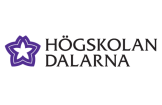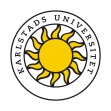the industrial region
The economic focus lies with the global steel and engineering groups in the region. The market for these companies is worldwide. As much as 85 percent of what is produced is exported to about 140 countries.
A large number of small and medium-sized companies are focused on delivering service and maintenance services, they have the large groups as their dominant market. Other companies process and further process steel in their own products or as Lego.
The steelmaking groups are strongly niched towards their respective product ranges.
The global market for special steels is growing. The companies are of great importance for the places where they are located. Several of them are among Sweden's ten largest companies.
The long-term supply of skills to the industry's companies is a key factor for development and growth. Academy and business collaborate to create needs-related educations at different levels.
Academy and research
The region has Dalarna University, Gävle University and Karlstad University. Dalarna University focuses on materials knowledge, among other things. Karlstad University is one of Sweden's youngest but most modern universities. Gävle University's research profile is a sustainable living environment and sustainable working life.
The Metal Research Institute Swerim conducts industry-specific research and development on metals and their path from raw materials to finished products. Swerim's vision is a fossil-free and circular industry.
RISE is the knowledge society's collection of forces for a sustainable future and a competitive business life. RISE is an innovation partner for innovators with products, services, processes and technologies that can be tomorrow's solutions. RISE vision "An internationally leading innovation partner" leads us towards the goal of becoming an obvious and well-known part of the Swedish innovation system, which operates in an international market.
The region has a steel, metal and engineering industry that is at the forefront of a worldwide market. Success is based on the ability to constantly improve production processes, develop materials so that they become lighter, harder and stronger and develop new smart products.
Researchers who, together with companies, seek answers to various concrete problems, are examples of collaboration between academy-companies.
The academy is also a link to the international scientific community, contributing to more innovations reaching society and more research results becoming commercial successes.
Collaboration takes place with international and national knowledge environments that have relevant knowledge and research within the Sustainable Steel Region's focus areas.












